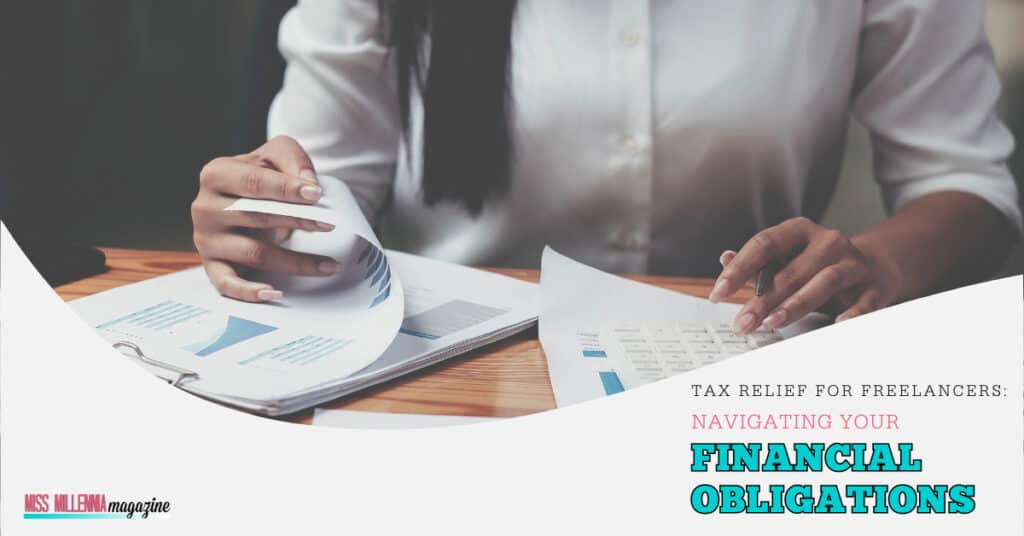Tax Relief for Freelancers: Navigating Your Financial Obligations

Being a freelancer comes with the enviable perk of flexible working hours and the freedom to choose projects, but it also involves complex financial responsibilities, especially regarding taxes. Compared to traditional employees, freelancers must navigate the labyrinth of estimated taxes, self-employment taxes, and potentially irregular income streams, making tax time particularly daunting. However, understanding the options available for IRS tax relief can significantly ease this burden, ensuring that you’re not only compliant with the law but also leveraging opportunities to reduce your tax liabilities.
The Importance of Knowing Your Tax Obligations
The freelance position is quite distinct from other jobs in terms of taxes; you are not the only one paid by your company, but you get a share of its sales revenues. Whereas the customary tax authorities consider you both a taxpayer and a tax collector, you would automatically be subject to the entirety of Social Security and Medicare taxes paid by employers with the self-employment tax rate cup. Furthermore, you must submit quarterly estimates of fiscal responsibility payments to cover your estimated tax liability for the year, including income and self-employment.
To pay on time, these liabilities can be penalized, and they must pay the unpaid taxes plus the interest. Nonetheless, freelancers are still growing when taxation is involved in their field of work. The IRS offers multiple tax relief options that, if utilized, can help you get through a challenging period or even reduce the amount of taxes you owe; thus, you’ll have more excellent financial stability and room to breathe.
How Tax Relief Programs Can Help
Tax relief measures are ways to help people who need help paying their taxes fully. Through different instruments such as debt settlement programs and government payment plans, and in some specific situations, if required, the government may temporarily suspend any collection efforts during hardship cases. These programs can play a prominent role in the freelancer’s experience. One of the advantages of these programs is that they help self-employed people without ceasing the operation of their business to cater to the tax debt.
An important option is an Installment Agreement enabling taxpayers to pay their taxes in smaller and manageable parts within an interest-free period assigned by the IRS. This poses an excellent opportunity for anyone who draws the income from freelancing and those who experience unsteady income to have an option. As long as they are by smaller, regular payments, one can handle them better since freelancing can sometimes be irregular, and the income may come differently than usual.
We also have the Offer in Compromise, which will allow taxpayers to pay their tax debt for less than the total amount if full payment would create a financial hardship. This is the gist for freelancers who qualify. However, you must undertake proper documentation and prove your financial status to participate in the program.
Another element of the tax-break program is the provisions that include penalty abatement that can be spared at the discretion of the tax office if the taxpayer can prove a reasonable cause for his delay or absence of return filing. This would offer the wronged freelancers and those who owe them money a chance to arrive at a much better financial situation if the deadlines were missed because of unpredictable events or misplaced information about the payment amount.
Conclusion
The tax of freelancing is an indecipherable labyrinth, but if one has the proper knowledge and tools, then the maze management becomes more comfortable, and the task can be completed. Federal income tax, which the IRS charges, offers many types of relief programs to help those taxpayers who find it hard to pay their taxes. This is one of the few wins that freelancers can accrue as they can be on the receiving end of these programs, which is why they manage to avoid the burden of tax and manage their business as seamlessly as possible.
Since your freelancing business is your primary income source, you must always know your tax obligation and the available recourse. Individualized consultation with a tax specialist will inform you of the tax breaks you may be eligible for and help you make the correct decisions if you are in doubt. It is important to manage your taxes well as a freelancer; hence, the appropriate approach always pays off.
